
‘I want to live a bit longer’ In their own words, Kharkiv residents describe life under constant Russian bombardment
Мы рассказываем честно не только про войну. Скачайте приложение.
In early May, Russia launched a new offensive to the north and east of Kharkiv, Ukraine’s second-largest city. According to Ukrainian President Volodymyr Zelensky, Ukrainian forces have managed for push back Russia’s advances near the state border. But the city of Kharkiv itself continues to face intensified attacks. Meduza spoke to three residents to learn what life is currently like in the city, how they’re coping with the relentless barrage of missiles and drones, and what they expect from this new phase of the war.
Andriy (name changed)
Top manager
You say that attacks on Kharkiv have intensified recently, but in reality, it’s been going on for months.
They attack in “waves”: first us, then Odesa, then us again. Some days it’s heavier than others. Since the beginning of the year, the only thing that’s new is the addition of guided aerial bombs — starting about a month ago. They haven’t hit our district [Novobavarskyi] so far, but an aerial bomb landed in the neighborhood where I work, close to the Pivdennyi Vokzal metro station. That area gets hit regularly because there are several important pieces of infrastructure there.
Our district is unique in that it has everything: a railway, an industrial zone, and other critical infrastructure, including a power plant. We’re equidistant from several of these places. So, there’s an ever-present danger.
Recently, [my wife, our 12-year-old son, and I] saw a Shahed drone hit a 14-story building right outside our window. It was about one tram stop away from our home. We regularly see them being shot down, or attempts to shoot them down, in our part of the city. Although sometimes, we can hear strikes that are very far away — just the other day, two Iskander [missiles] hit a resort near Kharkiv. It was so loud that probably the whole city heard it, even though the resort is very far from our home.
Whereas on February 24 [2022], my family set off for Dnipro as soon as we heard the heavy artillery fire somewhere outside the city, when those two Iskanders hit, we took it as routine — we were just sitting down to lunch. And the fact that this has become so normal is truly terrifying. You don’t feel the danger so much.
By our standards, a heavy assault is when 10 or more missiles hit the city. When it’s five or seven, we don’t even wake up. Not long ago, I woke up during an attack — but not because of the sound, because of a bright flash. To survive in Kharkiv today, you have to relax as much as possible — just so you don’t internalize it all, don’t start reacting to every sound. I only recently realized how much mental strain I’m under. I went to Kyiv for a week on business and stayed in some friends’ empty, very quiet apartment. There was a faulty water filter that would make a very loud sound every few minutes. When I first heard it, I thought my heart was going to stop.




I don’t want to leave the city. It’s just practical to stay here in terms of housing and work. But in a few days, my wife and son are leaving for an E.U. country. We made the decision for our child’s safety, even though he seems calm about the situation in the city. I don’t know, maybe he picks up on my [outward] calmness. He plays volleyball, and just a few days ago, a strike hit the industrial zone very close to his sports complex, and there were casualties.
There’ve been strikes on our beloved Central Park as well: they hit the movie theater, the children’s railway, and the volleyball field where my son and I play. We stopped going to the park because there aren’t any good places to take shelter. And in general, if an attack starts, we try to stay [at home], not go anywhere. But in 95 percent of cases, the strike comes first, and then the air raid siren comes after. So, we find out about the danger through Telegram channels that report potential missile launches [from Russia’s Belgorod region].
We also decided to get our child out because there aren’t any guarantees that we [the Ukrainians] will be able to defend Kharkiv. As [the destruction of] Soledar and Bakhmut shows, the Russians will stop at nothing to achieve their goals. I don’t think they’ll be able to take Kharkiv, of course, but they can certainly cause us a lot of trouble. In fact, they already are. They fire a couple of missiles and that’s it: destruction and casualties. That’s more than enough problems.
Today [May 23], there was also a major attack. Our clients’ office got hit. In short, things are pretty rough here. How do I feel about it? I’m extremely angry.






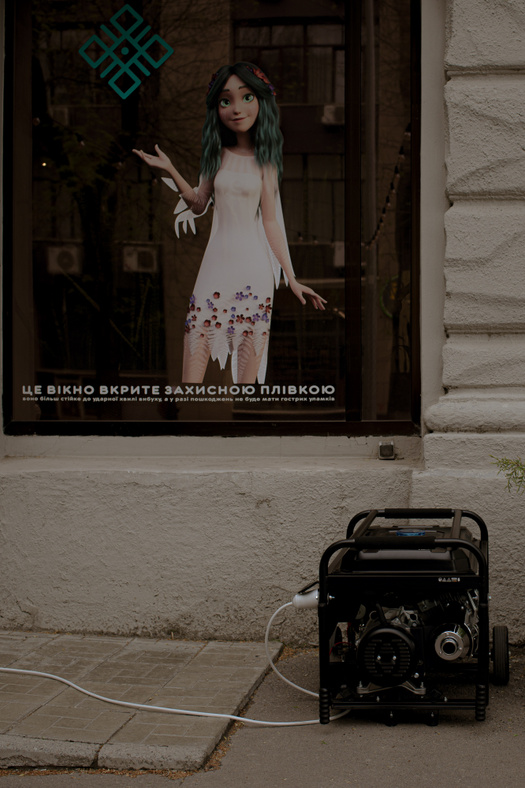
Viktor
Volunteer
While I was reading your message and pouring myself some coffee, there was a rather loud incoming strike. It’s usually that loud when the impact is somewhere nearby, within five kilometers [about three miles]. This morning [May 23], I heard about 10 hits in Kharkiv. It’s very unpleasant — and there's no point in running to a shelter. It takes about three minutes for a missile to get here from Belgorod, and the siren doesn’t always go off in time.
We only have time to read about it in Telegram channels: a launch, an impact, an explosion, another launch, two more in the air... This is how we live throughout the day: reading, tracking things, [trying to determine] what’s happening and whether or not we should be afraid. Is it scary? Yes, it is. But we try to hold on, not lose heart, and keep working. What else can we do?
Some of my acquaintances think that the [number of attacks] is the same as last year. People’s subjective views on the matter differ. It seems to me that the Russians have started intensifying attacks since they moved on Vovchansk, especially compared to last year. [...] Now, they’ve added Shahed “mopeds” at night, which make an awful sound. It really sounds like a moped flying through the air. They’re more and more frequent now, especially in the last six months.
Some buildings in the center that were hit are missing their upper floors. In [the Saltivka district], entire entrances of buildings are gone. In one acquaintance’s building, a whole section simply collapsed after a hit, and all the windows in the building were blown out. But people still live [in the other parts of the building]. They got electricity back in about a week, but heating was more difficult.
Heating for next winter is already a big question for the whole city. Those living in panel buildings will have a tough time. Last winter, the power would go out for four or five hours, and the house cools down immediately. You can’t use a space heater, and the boilers don’t work. If there’s no gas, you can’t even cook food. People make do by buying small camping stoves with gas canisters.

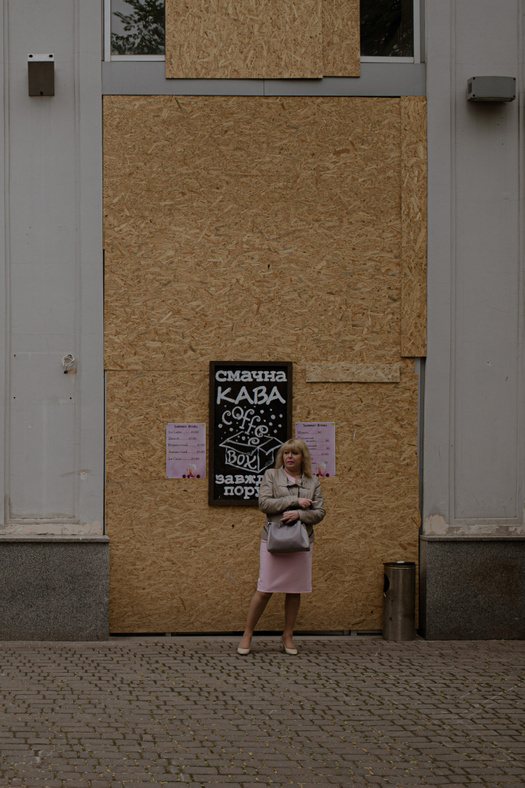





My grandmother is bedridden. Luckily, we live in a residential area with private homes. There’s always water, even if it’s just a trickle. I stock up, fill bottles — it makes things easier. We’re even luckier when it comes to electricity. The towers are de-energized [during attacks], and virtually all connections drop, no matter the operator. The connection just melts away like snow, and the Internet goes with it. But we’re hooked up in such a way that we usually still have electricity during blackouts, though not always.
So, everything seems more or less fine: I’m vigilant, but not panicking. But I sleep very poorly, of course. I live near a siren, and it’s very unpleasant — especially now when it’s warm, and we open the windows. The siren can go off at one, three, or five in the morning… You can’t sleep properly. And you can’t sleep when you hear incoming strikes or when Shaheds are being shot down. It feels like the war is right under your window: you hear the bursts of gunfire, and then the Shahed falls.
Meduza has condemned Russia’s invasion of Ukraine from the very start, and we are committed to reporting objectively on a war we firmly oppose. Join Meduza in its mission to challenge the Kremlin’s censorship with the truth. Donate today.
But I’m not planning to leave right now, nor would I want to. I have a bedridden person to take care of, who likely wouldn’t survive the trip, and I still have a job that supports me. If my income disappears, I don’t know what I’ll do. Maybe just slowly go insane.
It’s getting harder and harder to survive. Although we’ve gotten used to the explosions — it’s just another impact somewhere. It amazes me, but when the [air raid] siren goes off, people don’t rush to hide. They just don’t react. There’s a school near us, and the schools have shelters, as usual. I went there once, and (forgive me for this quote) the custodian said: “Not even one bum has come in! No one comes to the shelter at all.” Maybe a handful of people have gone there this whole time. The only point in running there is if you’re very close. And even then, you’re lucky if you make it.
I feel uneasy. Maybe that’s the right word. I don’t feel safe in the city center, although others walk around like nothing’s wrong. No one is safeguarded from a hit. There was a strike at a resort — who could have guessed that something would hit there?! What were the Russians looking for there? Nothing makes sense.
At the beginning of the war, there was a feeling of some kind of fearlessness: if something kills you, so be it. Now I think about things differently. If we survived the horrors that happened here at the beginning of the war, then I want to keep on surviving, somehow. I want to live a bit longer.
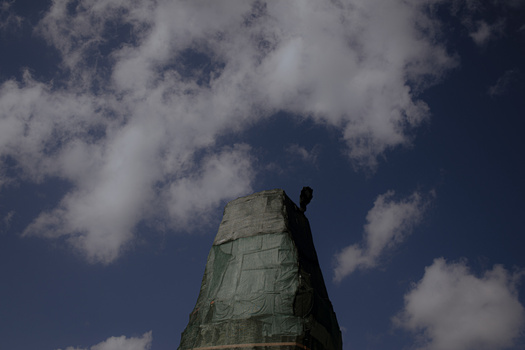
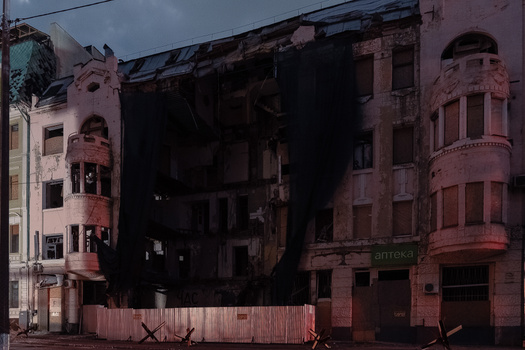





Iryna (name changed)
Economist, analyst
I feel like the attacks intensified at the end of last year, and since then that’s just been the usual: missiles are flying, Shaheds are flying... Of course now, since around May 9, the sounds of attacks in the region have become significantly louder.
They bombard us constantly — just sometimes more frequently or less. You get used to all the incoming fire; you start ignoring it. If it’s far away, thank God. What scares me most isn’t the strikes or the general situation in the city, but the uncertainty about what to expect. Will there be an occupation or not? And if there is, how long will it last? Will there be a chance to get out? Currently, the thought that terrifies me is [the possibility of] there being no way to leave and take what’s needed to live in another city. I already stayed in a rented apartment in another city for a year and a half. I really wanted to come home — where all my things were, where everything was familiar.
Recently, the situation in the city center hasn’t been good; it gets hit quite often. I go there a couple of times a week, but I don’t go into any establishment unless it’s in a basement. You know there could be a strike at any moment, and you could be affected. I know a lot of people who just ignore [the danger], but for me, there’s no normal life in Kharkiv.
At first, we were afraid of everything, but now we’ve gotten used to [the sound of missiles]. We can already tell from the sound which district got hit. I was near one place that got hit. On December 30 last year, I was in a building next to the Kharkiv Palace hotel. I was lucky that I was in a closed room far from the epicenter, so I made it out with just a small scare. You just hear a loud sound, understand there was a strike nearby, and realize that panicking is pointless — after all, it already hit. At most, you move away from the windows in case there’s another strike. It’s not that I’m so brave and fearless, it’s just that when this happens all the time, you become much less scared.
I work remotely, so I really want to go out [of the house]. Sometimes, I even manage to go to a concert, but if it’s on a high floor, I think twice about whether to go or not. But even if you do go, you won’t feel comfortable and safe. In the back of your mind, you’ll be thinking that something could hit the neighboring building. So each time, you think about how much you really want to go.
Still, businesses in the city are working, and new ones are opening. In general, life is manageable, although the energy situation is definitely tough: it looks like [next winter] we won’t have heating. We might even have to go [to another region] for the winter since there might not be electricity for space heaters either.
When there’s an air raid alert, I don’t go into the hallway or to a shelter. Especially since they often go off at night, and people sleep at night, no one gets up. I don’t even wake up if it isn’t very loud. My mental state would have deteriorated long ago if I reacted to every alert.



Of course, you’re always tense from not knowing what will happen next. It’s impossible to plan your life or make any decisions. You don’t buy things, [like] furniture, [because] you don’t know what will happen to your home, if it will even survive. This throws you off balance more than the strikes. If something happens, will I have time to get my family, my dog? I haven’t sunk into depression over these thoughts yet — I take sedatives occasionally and I try not to work myself up too much.
I read the news regularly, but I don’t believe many sources because I see how the information is distorted, how some things are left out. It’s hard to make any predictions because we don’t have complete information on what’s happening. We don’t know what kind of aid there will be, or whether it will reach Kharkiv. Kyiv is much better protected — they spent much more money on air defenses there.
I think that if Russia sends more troops here, it will be able to at least surround Kharkiv, even if it can’t capture it. I wouldn’t want to be cut off from the rest of Ukraine. That really is scary: how would we get food and medicine? So, I check the news to at least get a rough understanding of whether Russia is simply trying to create a buffer zone here, which is one thing, or if they’re going to capture Lyptsi and then be able to reach the city with conventional artillery, which is another thing entirely. Then, those in the northern part of the city will have to leave.
Many people are categorically opposed to evacuating; they’ll stay here until the end because the city is truly important to them. They won’t find a place where they’ll feel better than at home. And I’m not just talking about pensioners — a lot of young people feel the same way. But, on the other hand, there isn’t really life as such here right now. All we can do is wait for an answer to the question: “What’s going to happen next?”

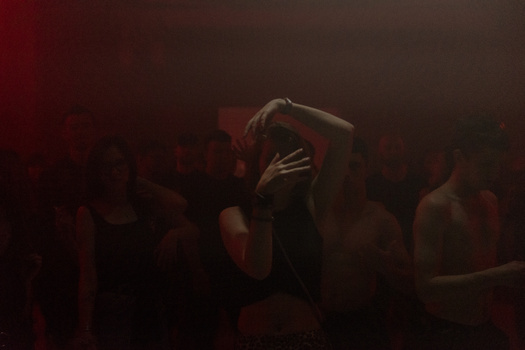





Interviews by Irina Olegova